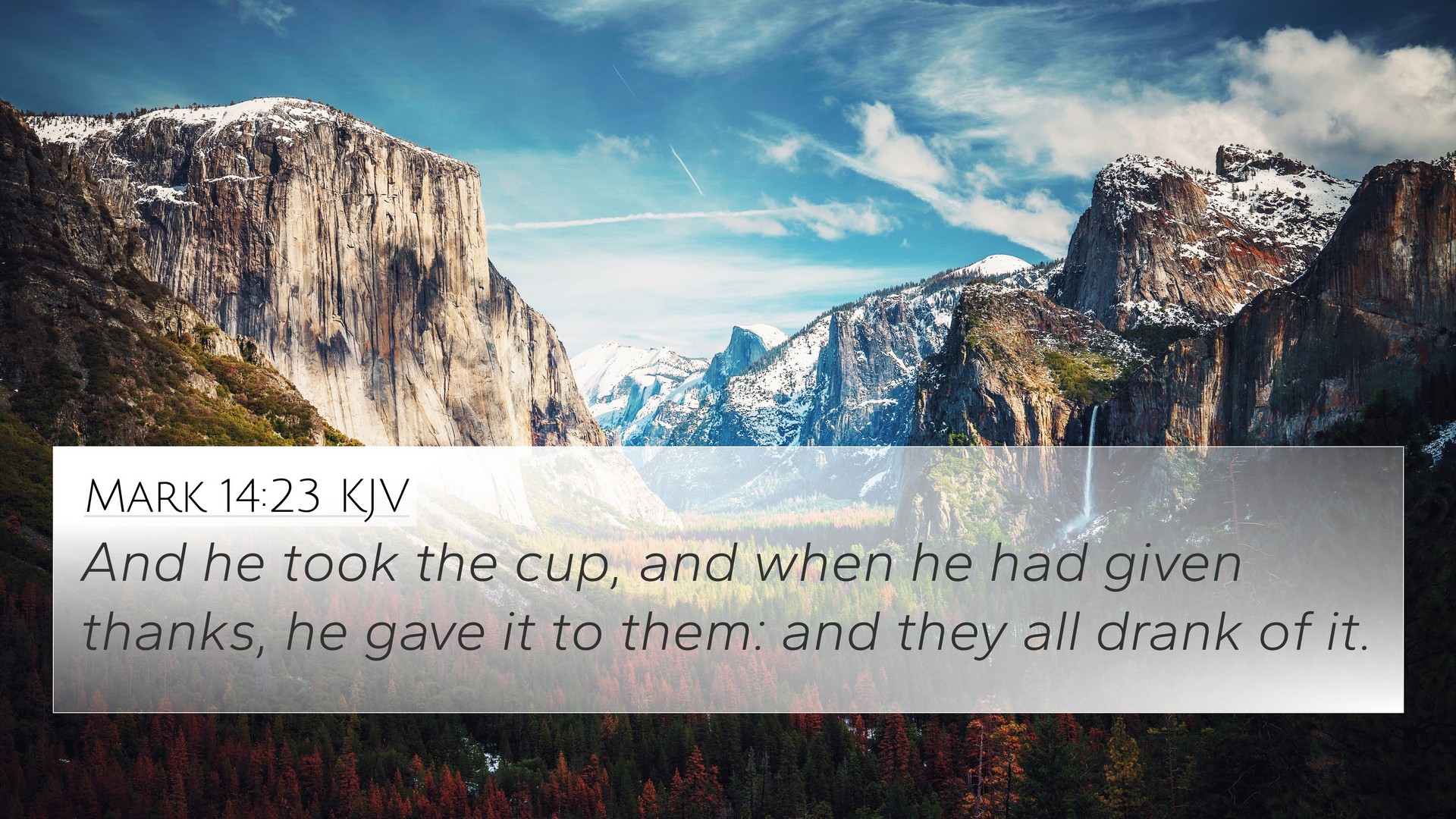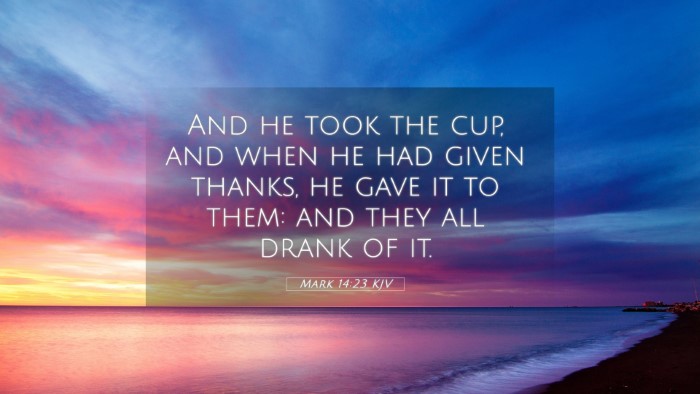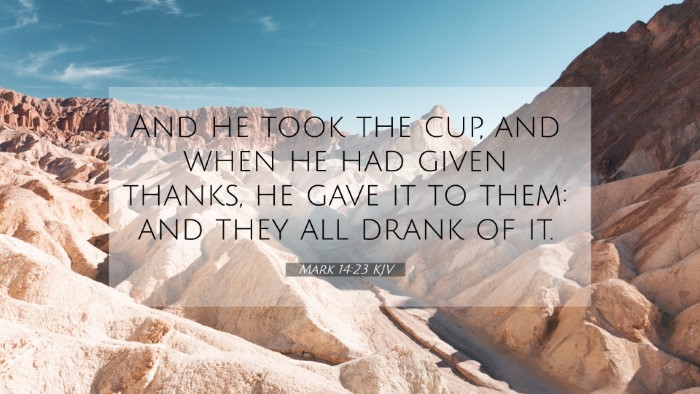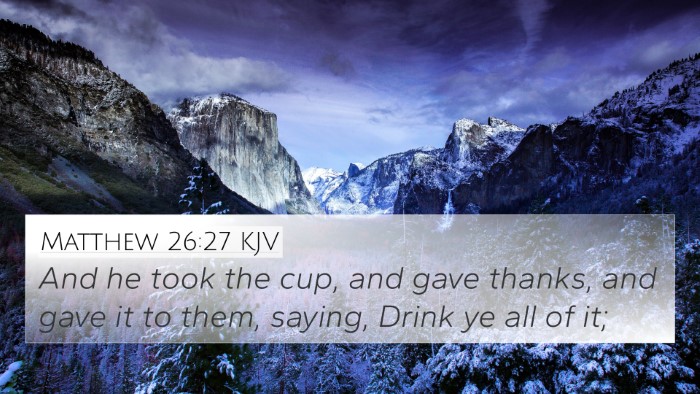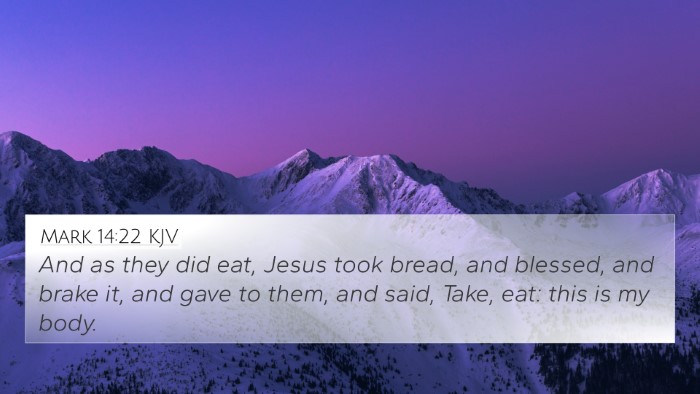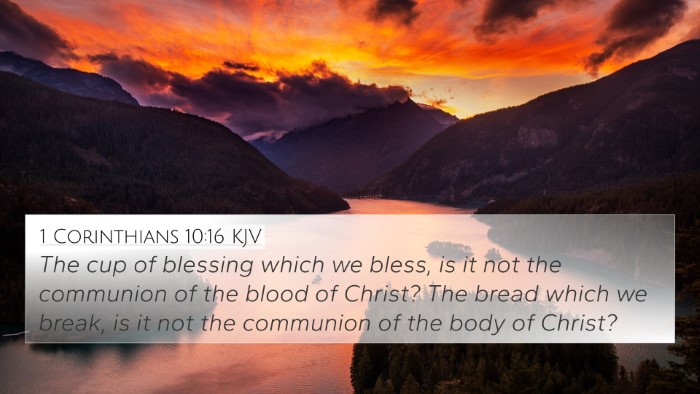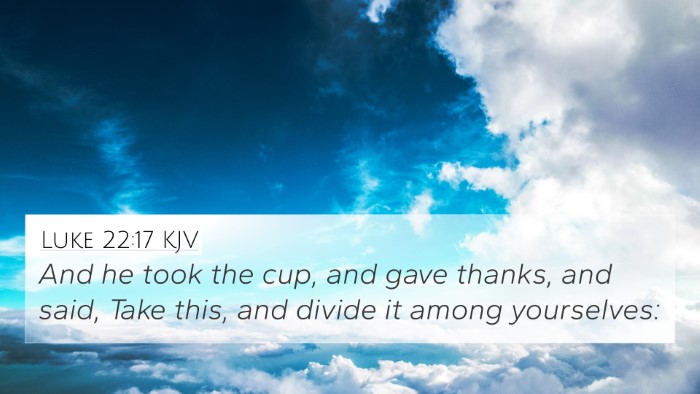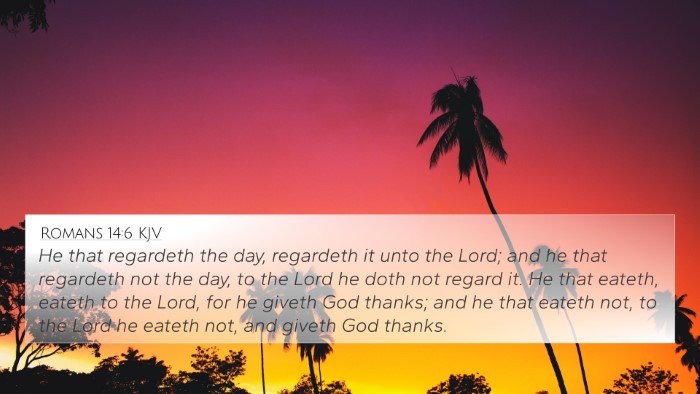Understanding Mark 14:23
Mark 14:23 states:
"And he took the cup, and when he had given thanks, he gave it to them: and they all drank of it."
Summary of Meaning
This verse occurs during the Last Supper, a significant moment where Jesus institutes the Lord's Supper or Communion. It emphasizes the act of giving thanks and sharing, which is central to Christian fellowship and remembrance of Christ's sacrifice.
Insights from Commentaries
Matthew Henry's Commentary
Matthew Henry highlights the importance of this moment as Jesus reflects on His imminent sacrifice. The act of sharing the cup symbolizes the new covenant, representing Christ's blood which would be shed for many. Henry notes that the act of giving thanks indicates the gratitude Jesus had despite knowing the suffering ahead.
Albert Barnes' Notes
Albert Barnes emphasizes the collective experience of the disciples as they partake in the cup, which signifies unity among believers. He connects this act to the Jewish customs surrounding the Passover meal, where wine plays a central role, reinforcing the concept of redemption and divine intervention.
Adam Clarke's Commentary
Adam Clarke provides a contextual analysis by linking this verse to the sacrificial system in Jewish tradition. He notes that just as the Passover lamb was central to Israel's deliverance, so too is the blood of Christ central to Christian salvation. Clarke also mentions that the phrase "gave thanks" highlights the necessity of gratitude in worship and the acknowledgment of God’s providence.
Thematic Connections
- The New Covenant: This verse foreshadows the establishment of a new covenant through Jesus' blood, fulfilling Old Testament prophecies.
- Communion: The act of sharing the cup highlights the importance of communal worship and remembrance in Christian practice.
- Gratitude: The emphasis on giving thanks encourages believers to adopt a posture of thankfulness in their lives.
- Unity: The shared experience of drinking from the cup unites all participants, symbolizing the body of Christ.
Cross References
Mark 14:23 is connected to various other scriptures that enrich its meaning:
- Matthew 26:27-28: Similar account of the Last Supper and the significance of the cup.
- Luke 22:20: Highlights again the establishment of the new covenant in Jesus' blood.
- 1 Corinthians 11:25: Paul reiterates the importance of the cup in the practice of Communion.
- Exodus 12:13: The Passover lamb symbolism, pointing to Christ as the ultimate sacrificial lamb.
- Isaiah 53:5: Foretelling Christ's suffering and atoning death, which is commemorated during Communion.
- Hebrews 9:14: Important for understanding the significance of Christ's sacrificial blood.
- 1 Peter 1:18-19: The importance of Christ's blood in our redemption from sin.
Conclusion
Mark 14:23 serves as a crucial moment in the New Testament that invites believers to reflect on the sacrificial nature of Christ and the establishment of a communal spiritual tradition. Through the insights derived from respected commentaries, we can appreciate how this verse fits into the broader narrative of scripture and its significant implications for Christian worship today.
